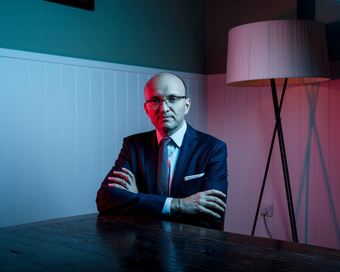
“You’re obviously like me, when it’s a hot, warm night you think, ‘lecture,’ so thank you very much for joining me.” Tim Hincks begins as people have settled down into their seats, feeling a little drenched with sweat and clutching themselves closer so the packed auditorium doesn’t fill with unpleasant smells. As the sun beats down in London, most people would be loosening their ties and springing nearby to Green Park. Instead, us industry types wanted to bask in the intelligence, humour and wit of Tim Hincks - President of the Endemol Shine Group.
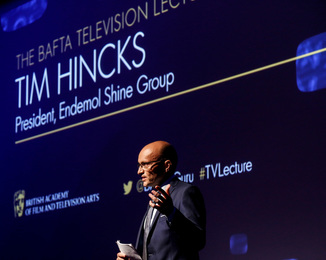
Of course, the joking part is the length of time. The focus of the lecture is how we tackle the “buzzword” creativity. Hincks continues; “Tonight I want to talk about that, in a way, that creativity that we’re all part of. That creative process, and how we might think about it in a different way going forward. And I want to, just be clear about it, I’m talking about creativity for the purpose of tonight across all platforms. I’m not getting obsessed about what television is or isn’t, unless you want to go on for six or seven hours, I think I’m just thinking about it across any screen, doesn’t matter what screen it’s on, I’m talking about the creative process that we’re all involved in as the world changes.”
For many, creativity is what you should strive for. Looking over his portfolio, Hincks is a clearly the right man to be talking tonight about the different levels of creativity. Beginning his career in 1990, Hincks began producing BBC Two’s Food and Drink and worked on current event dramas such as Newsnight. In 2002, he became the Creative Director of Endemol and now stands as President. So when Hincks talks about creativity, you know it’s through passion and drive. “Creativity has become something overused, and, we’ve lost track of what it means.” He says, as he illuminates with metaphors about whacky companies with skateboarding offices. He’s right, of course, when he talks about creativity becoming this buzzword such as synergy that gets media companies frothing over the mouth. “It’s where you create something from nothing. It’s where you create something moving, beautiful, engaging, emotional, dramatic, it’s a story. And that for my money can take place whether it’s a game show, whether it’s a drama, whether it’s a comedy. It’s about that blank sheet of paper and those few people with the real talent to turn that into something with a beginning, middle and an end.”
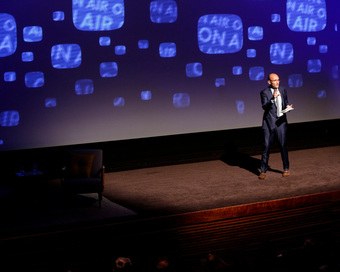
But Hincks continues on how to improve and adapt the industry. Secondly, you need brilliant people. “Right well we all know that, we need brilliant people, but my view is for a creative organisation to thrive, you need it to be competitive,” he says meaning that in order to develop your work, you’ll need to know who you are racing against. Whilst networking and being friendly to one another is fine, there is also an encouragement for friendly rivalry. “But you also need it to be safe. Creative people are very competitive. There is nothing, and we can talk maybe later about our kind of ecosystem and how competition is so important to the creative process in this country. But you know, having a hit show is the best feeling in the world. The second best feeling in the world, let’s face it, is someone else’s show failing.”
Hincks’ main stream of thought for today’s lecture is just that - the mainstream. We’re now at that stage where niche and “boxset” drama are prevalent. It’s what audiences and producers claim to enjoy most. Shows like True Detective, Sherlock and more all herald the “golden age of television.” But whilst this is brilliant, Hincks denotes that we shouldn’t be afraid of the mainstream as being wildly entertaining and important programming which he demonstrates with Deal or No Deal that, even though it goes against our pompous thinking, we all admitted was tense. “It was created by a team of brilliant people who nurtured it, made it better, changed it; it was passed around different countries as we thought about how to make it work. And in my view it does exactly what I’m talking about. It’s made up of boxes that we buy from Ryman’s, right, in an old biscuit factory in Bristol, and it’s a construct that’s been created. And yet for all that, to me it has delivered some of the greatest drama on British telly.”
Using Ed Sheeran as a carrot-topped metaphor, Hincks urges people to embrace the mainstream; “Too often regulators, politicians, broadcasters and producers - very clear about that, and producers, too often they’re snobs - they’re snobbish about what we make. They’re snobbish about their own content.”
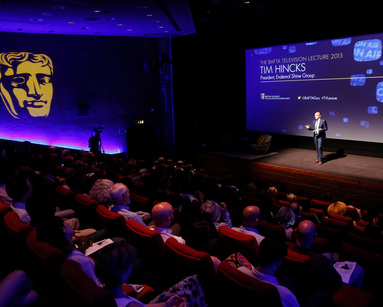
Hincks highlights that we’re losing our faith in mainstream despite having a wide audience base and that shows such as Snog, Marry and Avoid, Ant and Dec’s Saturday Night Takeaway and Big Brother all serve some purpose in our regular programming, but “Where everybody’s running a bit scared is the mainstream, it’s the mainstream that’s in danger.”
“And I want to link it now to my second area, because the other way we might think about the way we approach the mainstream is in terms of talent, and in terms of how we think about the kind of people that are in our industry, and helping us create the next generation of content.” Hincks is quite rightly talking about working class versus middle class and the divide that continues to feel bigger by the year. A topic that has been spoken about by James McAvoy and The Doctor himself, Christopher Eccleston, Hincks’ background is from public schools; “That’s a big, big problem, because what I’m talking about is not moral, it’s not political, I’m talking about a talent base, right? I’m just coming back to the very basics that we need to bring as many talents into this industry as we possibly can, and we’re hampering ourselves by not fishing in a bigger pool.”
Hincks believes in outsourcing more people from public schools as well as private (being sure not to exclude students and creatives from affluent backgrounds). With the need to diversify the industry, Hincks says that to expand our talent pool, we need to look at a bigger population and doing so, we have to stretch out; "I believe and I propose that Project Diamond, which is I think you will probably know, measures diversity, tracks it with broadcasters and producers and tracks that, how we’re doing in diversity, sets targets for social diversity, right. We need to set targets, we need to agree as an industry very quickly and we need to implement them, and we need to look at how well we’re doing.”
Finally, using an example from Swedish television show The Bridge, Hincks argues that despite how fruitful we are as, we need to expand into other cultures and shows. Networking with Europe and even America, Hincks has been able to develop Endemol to the company it is today. “I think we need to be more connected, where I think we need to be more, less insular, as in how we think about how we think about our approach to the world, so the international scene. So a new approach if you like to our global role.”
Throughout the lecture Hincks proved his dynamism and energy that flows with comedy and hysterics. As we all giggle at his kinetic personality and astute intellect, he delivers an astonishing lecture on how we can move forward with the industry. Hincks concludes; “Let’s remind ourselves what we’ve done, I hope. We’ve talked about the creative challenges ahead. I hope I’ve talked about it in terms of creativity rather than about platforms and which platforms are right and how they, and the sort of mechanics of it, creativity. We are extremely good at creativity in this country, and my obsession is about making sure the next generation, on whatever screens that content appears in, are in good health and are protected and are supported. So I hope I’ve told a story of hope and optimism. I believe we are capable of great, great things together. I believe we need to be less insular as an industry. I believe we need to think about risk and ambition. I believe we need to grapple finally with this big issue of talent and social background, and I think we need to be match fit and take our place to compete with the world, and with the rest of the world. And if we do that I genuinely, genuinely believe the next ten years can be even more creatively exciting than the last ten.”
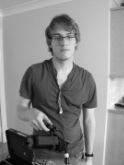
 RSS Feed
RSS Feed
